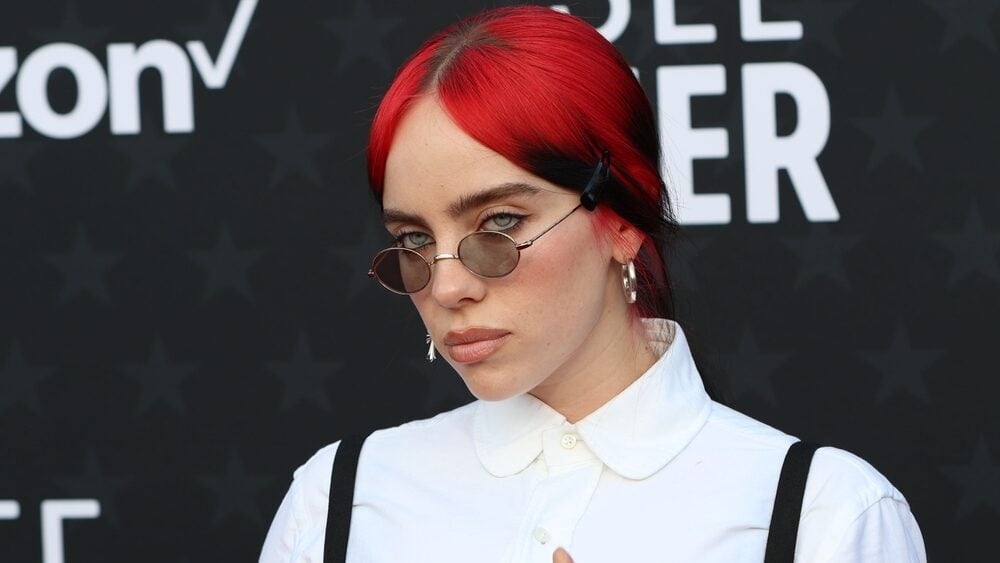A group of more than 250 prominent musical artists and groups have signed a letter urging the US Senate to pass a comprehensive bill to reform ticketing practices.
The letter, organized by Fix The Tix, a coalition of over 30 industry organizations spearheaded by the National Independent Venue Association (NIVA), has the support of Billie Eilish, Green Day, Lorde and Sia, among others.
It calls on lawmakers to pass the Fans First Act, a bill introduced in the Senate last December that seeks to increase protections for consumers who purchase tickets while limiting “predatory practices” by ticket resellers, such as bot-driven mass purchases of tickets that are then resold to the public at higher prices.
Other signatories include Cyndi Lauper, Dave Matthews, Fall Out Boy, Duran Duran, Becky G, Major Lazer, MGMT, Ben Folds, Diplo, the Pixies and the Indigo Girls.
“We are joining together to say that the current system is broken: predatory resellers and secondary platforms engage in deceptive ticketing practices to inflate ticket prices and deprive fans of the chance to see their favorite artists at a fair price,” states the letter, which was addressed to Sen. Maria Cantwell, the Democratic Chair of the Senate’s Commerce Committee, as well as Sen. Ted Cruz, the ranking Republican on the committee.
“Predatory resellers have gone unregulated while siphoning money from the live entertainment ecosystem for their sole benefit. They use illegal bots, speculative ticket listings, and deceitful advertising, which cause real harm,” the letter continued.
The bill is focused on three key areas of reform:
- Ticket price transparency, including requirements that the final price of a ticket, including fees, is provided before purchase; a full breakdown of ticket costs and terms of purchase is provided; seating details are specified; and the seller identify whether they are the original seller.
- Consumer protection, including strengthening enforcement of earlier laws against bot usage; proof of purchase delivered to ticket buyers within 24 hours; and full refunds for event cancellations.
- Tools to stop bad actors, including civil penalties on illegal resellers; a complaint-reporting website for ticket buyers; a ban on speculative tickets (i.e., resellers selling tickets they haven’t yet bought); sanctions on deceptive websites and fraudulent sellers; mandatory reporting of violations to the Federal Trade Commission; and a mandate for the FBI to share ticketing violation information.
The Senate bill was introduced by a bipartisan group of lawmakers composed of Democratic Sens. Amy Klobuchar, Peter Welch, and Ben Ray Lujan, and Republican Sens. John Cornyn, Marsha Blackburn, and Roger Wicker.
It has the backing of numerous industry groups, including the Recording Academy, the Recording Industry Association of America (RIAA), Songwriters of North America, the Artists Rights Alliance, and the Screen Actors Guild-American Federation of Television and Radio Artists (SAG-AFTRA).
It also has the support of ticketing companies Eventbrite and Ticketmaster.
“The current system is broken: predatory resellers and secondary platforms engage in deceptive ticketing practices to inflate ticket prices and deprive fans of the chance to see their favorite artists at a fair price.”
Letter to Sens. Cantwell and Cruz, from 250+ artists
“We support the Fans First Act and welcome legislation that brings positive reform to live event ticketing,” Ticketmaster owner Live Nation said in December.
“We believe it’s critical Congress acts to protect fans and artists from predatory resale practices, and have long supported a federal all-in pricing mandate, banning speculative ticketing and deceptive websites, as well as other measures.”
Live Nation has already begun implementing certain aspects of the bill, such as “all-in” pricing that displays the final cost of a ticket before purchase.
However, the Fans First Act doesn’t address some of the more controversial practices of primary ticket sellers, such as the “dynamic pricing” model used by Ticketmaster, which adjusts ticket prices in real time based on demand. This led to the 2022 controversy over $5,000 tickets for Bruce Springsteen’s tour.
Live Nation also came in for criticism in 2022 when Ticketmaster’s system crashed amid massive demand for tickets to Taylor Swift’s The Eras Tour – though CEO Michael Rapino later explained that the crash had to do with Ticketmaster’s efforts at preventing bots from buying out the tickets.
“Predatory resellers have gone unregulated while siphoning money from the live entertainment ecosystem for their sole benefit.”
Letter to Sens. Cantwell and Cruz, from 250+ artists
Some lawmakers have argued that Ticketmaster’s dominant position in the ticket market is a primary cause of high ticket prices – something the company has vehemently denied.
The company has reportedly been under antitrust investigation by the US Justice Department for the past few years. Recent reports in the Wall Street Journal and the Washington Post have said the DoJ is set to file an antitrust lawsuit against the company – though similar reports have emerged over the past few years, with no subsequent lawsuit filed.
Ticketmaster has repeatedly argued that its ability to set prices is very limited.
“Tickets are actually priced by artists and [sports] teams. It’s their show, they get to decide what it costs to get in,” Live Nation’s head of corporate affairs Dan Wall wrote earlier this year.
“The NFL tickets on Ticketmaster were priced by the home teams, concert tickets were priced by the performer’s business teams, Monster Jam tickets were priced by its producer (Feld Entertainment), and so forth.”
A similar bill to the Fans First Act was tabled in the House of Representatives last year by a bipartisan group of lawmakers. The Transparency In Charges for Key Events Ticketing (TICKET) Act would require full disclosure of a ticket’s final price before purchase, and would ban “speculative” ticket selling, similar to the Fans First Act.Music Business Worldwide


